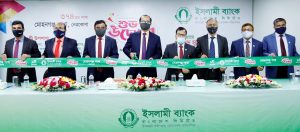The United Nation‘s labour agency urged Bangladesh to close unsafe factories as rescuers pulled more bodies from the wreckage of the nation‘s worst industrial disaster in which at least 548 have died. The collapse of the eight-storey garment factory complex outside Dhaka last week was the latest in a string of catastrophes to befall the country’s US$20 billion (A$19.6 billion) textile industry which accounts for 80 per cent of Bangladesh‘s exports.
Action is needed to ensure such “avoidable accidents” that tarnish the image of Bangladesh‘s industrial image never recur, said Gilbert Houngbo, field operations deputy director-general at the International Labour Organisation.
“Part of the action that needs to be taken is to make sure all factories are inspected and any remedial action necessary is put in place,” Houngbo said.
“Some factories (that cannot be repaired) may have to close down,” said the former prime minister of the West African nation Togo.
Earlier, Main Uddin Khandaker, lead government investigator into the disaster, blamed the cave-in on vibrations from four huge illegal generators on the complex‘s top floors.
“When these generators were started after a power cut they created vibrations, and together with the vibration of thousands of sewing machines, they triggered the collapse,” Khandaker said late Friday.
The building “sandwiched into one floor like a pack of cards,” he said, adding that the Rana Plaza building was constructed “for commercial use,” not as a factory, and it could not withstand the vibrations because the owner had used substandard rods, bricks and other materials to build it.
Bulldozers and cranes clawed away for an 11th day on Saturday at the mountain of rubble at the plant site to uncover more bodies as distraught onlookers stood watching, clutching photographs of missing relatives.
The death toll “now stands at 548” and is expected to rise as rescuers have spotted more bodies trapped between the pancaked floors, army spokesman Major Sazzad Hossain said.
Impoverished Bangladesh, with its population of 153 million, has just 50 plant inspectors to ensure the safety of its tens of thousands of factories including an estimated 4,500 garment plants.
After the April 24 disaster the government announced plans for an inspection blitz as it came under pressure from Western brand names to institute a “credible” safety regime in an industry with a shocking record. The government made a similar announcement after a devastating fire swept through a garment factory in November last year, killing 111 workers, but the subsequent inspections was widely derided as insufficient. Asked if global retailers were also to blame for poor safety, the ILO official replied, “Everybody wants to buy the highest quality at the lowest price.”
International buyers should display corporate responsibility, he said. “You shouldn‘t be doing business with a company somewhere in Bangladesh if you know very well it is abusing or not complying with national laws,” he said.
Western buyers do have “some kind of responsibility” for plant safety, said Houngbo, who during his four-day visit met Prime Minister Sheikh Hasina to convey the ILO‘s concerns about the tragedy and also with groups representing workers and owners, He called for a full dialogue engaging workers, owners and the government, ensuring freedom of association of workers and their right to collective bargaining to improve safety standards.
Although on paper Bangladesh‘s three million garment workers enjoy collective bargaining rights, only a few factories allow trade unions.
Last April, a top labour leader, Aminul Islam, was brutally killed amid reports he had been targeted by a national security agency. None has ever been prosecuted for his murder. banglanews4.com




